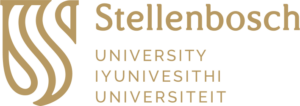
Digital Transformation (USB-ED)
Technologies continue to reshape the educational transactional environment. Artificial Intelligence and in particular Generative AI like ChatGPT, Hybrid learning, Open data, and the continued threat of new entrants into established markets via hybrid, online, and mobile learning, require an offensive approach to deal with traditional and new competitors. At the same time, organisations invest in operational technologies like student information systems to streamline internal processes, yet don’t often obtain the value envisaged at the outset. This value is often embedded in the process and culture changes to fully utilise the deployed technologies to create value. Whereas digital technologies are required for efficient operations, they are not sufficient to attain that. Only when taking a techno-social approach and dealing with the technology within its context can the full value of investments be attained.
This requires insight into technology adoption and innovation diffusion within a specific content. When leaders in organisations are sensitised to the transformative power of new technologies like open data, cloud computing, and modern approaches to data management and decision-making, can long-term value be identified and realised. Finally, increased digitisation also increases the risk to operations. The growth in cybercrime in South Africa and educational instances exposes Stellenbosch University to a new threat. Dealing with cybercrime, for example, ransomware attacks requires systemic preparedness and a move from cyber defenses to digital resilience. Being digitally resilient is a necessary precondition for digitally transformed organisations that are highly dependent on systems and technologies
Additional Details
Administrator - Albertus, Mrs. Alvira Liesel
Sub Category -
Audience - Senior leaders who are directly involved in the deployment and utilisation of technology in their work environment. This involvement does not have to be serving on digital implementation of project teams but includes managing teams that use technology to execute their tasks. Participants should have sufficient sight of the Stellenbosch University Vision 2040 and have a responsibility towards defining and directing work in their environment towards achieving these strategic objectives.
Objectives - Review the role of digital transformation in the university’s performance. Provide examples of digital technologies reshaping the educational landscape. Argue the importance of agility and the role of digital technologies in creating or stifling agility in Stellenbosch University to attain Vision 2040. Evaluate how their teams and existing processes are adapting towards existing technologies already deployed in their work environment. Use the Technology Acceptance Model and Innovation Diffusion Theory to define sets of actions to improve the utilisation of digital technologies in their work environment. Critically evaluate the role that data plays in their decision-making and list actions that will improve the data-based decision-making in their work environment. Analyse cyber weaknesses in human behaviour and define actions that will improve cyber resilience in their area of responsibility.
Course ID - 297568
Event ID - 1264857
Composite ID - 2975681264857
